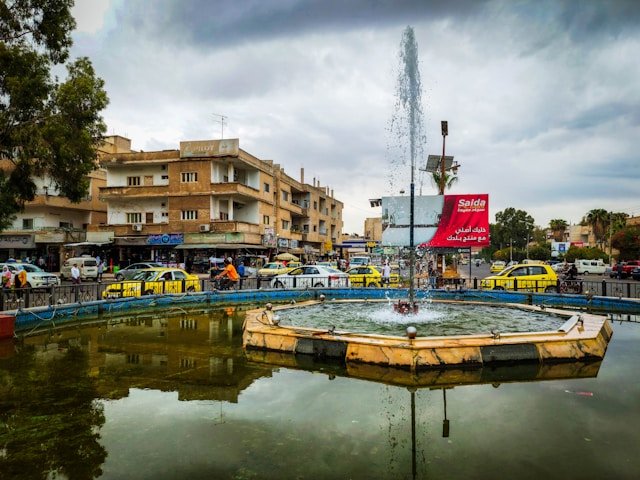America’s culture and leadership
What does it mean to be American.
Here are ten quintessential aspects often associated with being in America or being American, reflecting the country’s culture, values, and way of life:
1. Freedom and Individualism
- The value of personal liberty and the right to self-determination are cornerstones of American identity.
- Americans often celebrate individuality, emphasizing the importance of personal choices and freedoms.
2. The American Dream
- The belief that anyone can achieve success through hard work and determination, regardless of background.
- Homeownership, education, and career aspirations are common symbols of this dream.
3. Diversity and Melting Pot Culture
- America is one of the most diverse nations, with a rich tapestry of cultures, languages, and traditions.
- The idea of a “melting pot” emphasizes the blending of different heritages into a unified national identity.
4. Patriotism and National Pride
- Many Americans display a strong sense of pride in their country, symbolized by the flag, national holidays like Independence Day, and singing the national anthem.
5. Entrepreneurship and Innovation
- A culture that celebrates creativity, risk-taking, and business innovation.
- The U.S. has produced some of the world’s most transformative inventions and companies.
6. Sports and Competition
- Sports like football, basketball, and baseball are integral to American culture.
- Competitiveness often extends beyond sports into other aspects of life, such as business and academics.
7. Love for Road Trips and Cars
- With vast landscapes and a well-developed highway system, Americans often enjoy road trips as a quintessential experience.
- The car culture is deeply embedded in daily life.
8. Fast Food and Culinary Variety
- The U.S. is famous for fast food but also offers an incredible range of cuisines from around the world.
- Regional specialties like New York pizza, Texas barbecue, and New Orleans gumbo reflect local cultures.
9. Entertainment Industry Leadership
- Hollywood, music, and television have made America a global leader in entertainment.
- Icons like Disney, Netflix, and the Super Bowl halftime show represent the power of pop culture.
10. Community and Volunteerism
- Americans often come together during crises and are known for their generosity through charitable giving and volunteering.
- Grassroots efforts and community spirit are prevalent across the country.
These attributes reflect the ideals, traditions, and everyday realities that many people associate with life in America and the American ethos.
What went wrong
1. Freedom and Individualism
The balance between individual freedoms and collective rights has become contentious. Cancel culture, driven by woke ideologies, has sometimes restricted freedom of expression, leading to fear of speaking freely about controversial topics. Overemphasis on equity has, at times, clashed with merit-based individual achievement.
2. The American Dream
Economic inequality has grown, and narratives of systemic oppression have overshadowed belief in upward mobility. Too much focus on identity politics has, at times, shifted the dream from personal effort to systemic grievances.
3. Diversity and Melting Pot Culture
DEI initiatives, while well-intentioned, have sometimes led to division instead of unity. The focus on differences has, in some cases, undermined the “melting pot” ideal. The hyperfocus on race, gender, and identity has sometimes created an “us vs. them” mentality rather than fostering inclusion.
4. Patriotism and National Pride
Patriotism has been polarized, with symbols like the American flag and national anthem viewed differently across ideological lines. Woke culture has encouraged critique of American history, often eroding national pride without equally celebrating progress and accomplishments.
5. Entrepreneurship and Innovation
Excessive regulation and fear of offending specific groups have sometimes stifled creativity and innovation. Companies focusing on performative activism (e.g., pandering through marketing rather than delivering value) have diluted the entrepreneurial spirit.
6. Sports and Competition
Political activism in sports, while important to some, has alienated fans who prefer to keep sports as a unifying escape. Efforts to make competition more inclusive have, in some cases, led to debates over fairness (e.g., gender identity issues in women’s sports).
7. Love for Road Trips and Cars
Pushback against traditional car culture due to environmental concerns has created tension, especially with the rise of electric vehicles and policies limiting fossil fuels. The growing rural-urban divide has affected the cultural unity once tied to the open road.
8. Fast Food and Culinary Variety
Cultural appropriation debates have dampened the enthusiasm for celebrating diverse culinary influences. Health-conscious movements and environmental activism sometimes criticize the food industry’s ties to American identity.
9. Entertainment Industry Leadership
Hollywood has seen backlash for prioritizing political correctness over storytelling, often alienating audiences. Woke narratives in movies and TV shows are seen by many as forced, leading to declining box office numbers and viewership.
10. Community and Volunteerism
The shift toward online activism (“slacktivism”) has reduced meaningful, in-person community engagement. Polarization has fractured communities, making collective volunteerism and grassroots efforts harder to achieve.
While DEI, woke culture, and liberalism have aimed to address systemic issues, they have also unintentionally created divisions, stifled freedoms, and, at times, contradicted the values they seek to uphold. Balancing these forces with traditional American ideals is key to restoring unity and progress. Is Donald Trump going to fix it all. I don’t think one person can. But a nationwide movement that he has created, breathed life into and emboldened can.




